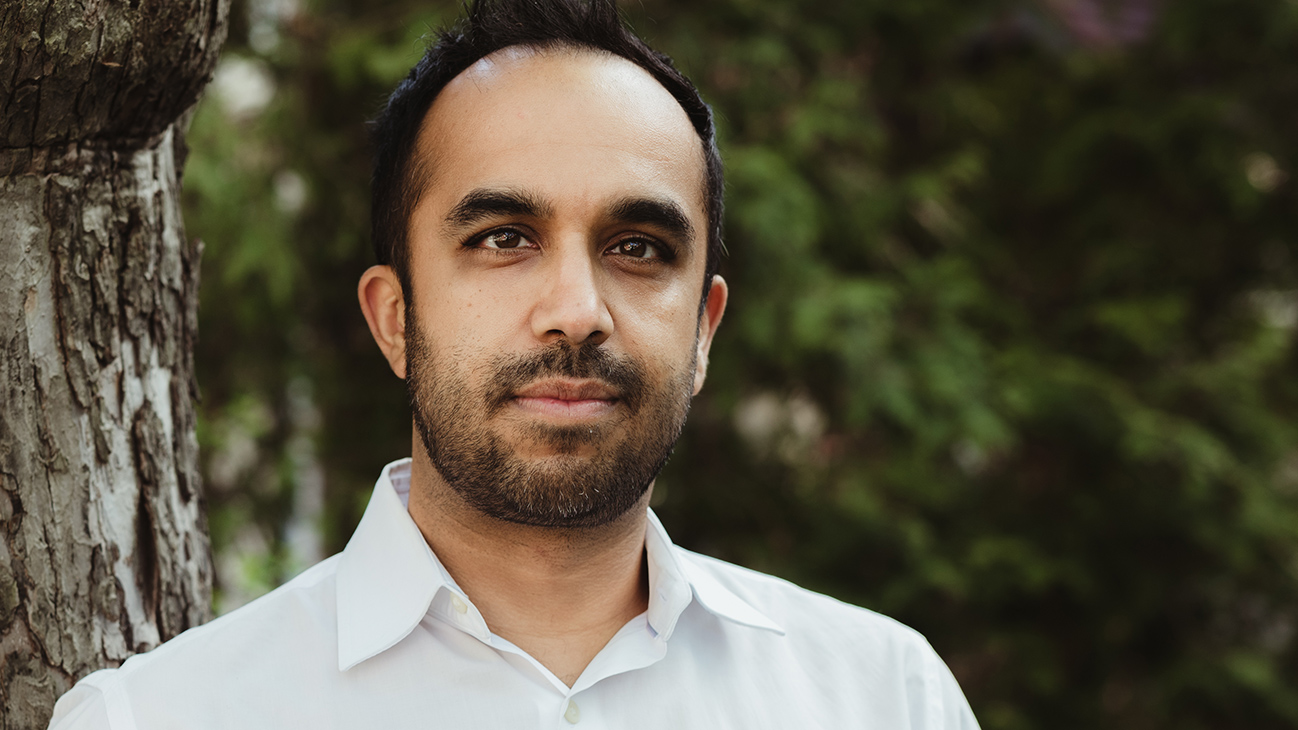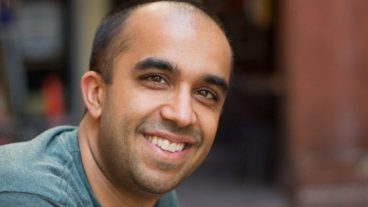Is “read more” on your ongoing to-do list? It was for Neil Pasricha. After spending most of his adult life struggling to fit in a few books here and there, the bestselling author went from reading five to 50 to upwards of 100 books a year! And credits his reading journey to becoming a better husband, better father, and better writer. So, what’s his secret?
The happiness expert recently shared eight tips to help you read the books you wish you had time for in an article for the Harvard Business Review. These tips transformed his habits so he no longer “wished” he had more time for books, but actually made the time to be a reader.
Follow these eight tips and join Neil in the reading revolution!
1. Live inside a world of books. Most people have a bookshelf “over there,” where the books live. But one day last year, my wife just dumped a pile of about ten picture books in the middle of our coffee table. What happened? Our kids started flipping through them all the time. So now we just rotate them and leave them there. It’s a path-of-least-resistance principle, much like how Google leaves healthy snacks on the counter for employees, while chocolates are hidden away in cookie jars. We’ve put the TV in the basement, installed a bookshelf near our front door, and slipped books into car seat pouches and various nooks around the house…
2. Go “red” in bed. My wife generally falls asleep before I do, and that’s when I strap my red reading light on my forehead. Why red? Michael Breus, author of The Power of When says the theory is that red light aids melatonin production. And bright lights have the opposite effect, according to The Sleep Health Foundation of Australia. Too-bright lights, or a bright screen, can make you feel more alert. Bedtime reading should help you wind down, not wind you up.
3. Make your phone less addictive. Cell phones are a distraction machine. Our cell phones are designed to be smooth, sexy, and irresistible. Don’t believe me? The book Irresistible by Stern School of Business associate professor Adam Alter will quickly raise your awareness of the addictive designs going into smartphones. They’re like pocket slot machines. So how do you resist the urge to reach for it? Make it less appealing. Move all of the apps off the main screen so it’s blank when you open it. Leave your cracked screen cracked. Move your charger to the basement so it’s an extra step in your low-resilience nighttime and morning moments. If you must have your phone in the room while you sleep, enable “Do Not Disturb” mode to automatically block calls and texts after 7 p.m. Slowly, slowly, slowly, you can prevent your phone from becoming so seductive.
4. Use the Dewey Decimal System. How do you organize your books? By color? By when you bought them? By big random piles everywhere? There’s a reason every library uses the Dewey Decimal System. It makes sense. Books fall neatly into ever-more-thinly-sliced categories around psychology and religion and science and art and…everything. What’s the benefit? You make connections. You see where your big gaps are. I spent one Saturday organizing my books according to the Dewey Decimal System and, in addition to scratching an incredibly deep organizational itch, I now find books faster, feel like my reading is more purposeful, and am more engaged in what I read, because I can sort of feel how it snaps into my brain…
5. Use podcasts and BookTube to solve the “next book” dilemma. As you start ramping up your reading rate, the biggest problem soon becomes “Well, what should I read next?” … In an era of infinite choice, the value of curation skyrockets. Podcasts and BookTubers (a subset of YouTubers focused on books) are now a reader’s curation dream machine. Where to start? In podcasts, “What Should I Read Next?” by Modern Mrs. Darcy tackles the problem head on and “Get Booked” by Amanda Nelson at BookRiot offers custom book recommendations. I also have my own show “3 Books,” during which we ask guests like Chris Anderson of TED, Judy Blume, or Chip Wilson to share three books that most shaped their lives. And: BookTube? Yes, BookTube. There’s a great overview of it here, and some starter channels to get you hooked are Ariel Bissett and polandbananasBOOKS.
6. Unfollow all news. Sure, sure, I preached before about how I cancelled my five magazine and two newspaper subscriptions to focus solely on books. But you know where the news followed me? Online. That’s where you need to go hardcore: Unfollow every news site on social media, and remove all bookmarks to news sites (remove all passwords, too)…
7. Read on something that doesn’t do anything else. As author Seth Godin told me in an interview, “People rarely read a book in iBooks because you’re one click away from checking your email.” If we can be interrupted, alerted, or notified, we will. That’s not good for diving deep into new worlds. So what do I suggest? Real books. Real pages. On real paper. Yes, I’m OK with killing trees if it means gaining the ability to disappear into your own mind. Only real books let you be the full director of the show, after all. No voice replaces your mental voice, no formatting or display screen affects the artistic intentions of the writer. Sure, I get it if you need bigger fonts, or if you drive all day and prefer audiobooks, but I’m just saying that if you want to be a real book snob for the rest of your life just like me, actual books are where it’s at. And, if you must use a device, just make sure that e-reader can’t receive texts.
8. Talk to your local booksellers. My favorite bookseller of all-time is Sarah Ramsey of Another Story Books in Toronto. I walk in, I start blabbering, I start confessing, I share what I’m struggling with, and she hmms and hahs and sizes me up as we wander around the store talking for half an hour. She finds: a good book after my divorce, a good book before my trip to Australia, a good book as I struggle with my kids. And then I walk out with an armload of books that completely fit my emotional state, where I want or need to grow, and those that resonate with me on a deeper level. If you believe humans are the best algorithm (as I do), then walking into your local independent bookstore, sizing up the Staff Picks wall to see who’s interests align with yours, and then asking them for personal picks is a great way to find books you’ll love faster…
A Harvard MBA, New York Times bestselling author, award-winning blogger, and one of the most popular TED speakers in the world, Neil Pasricha is “a pied piper of happiness” who dazzles audiences with ideas that skyrocket happiness into the stratosphere.
With infectious enthusiasm, heartfelt authenticity, and a “what works” authority, Neil draws on the latest research in happiness to increase individual performance and create a more positive and productive workplace.
Interested in learning more about Neil and what he can bring to your next event? Email us at [email protected].




